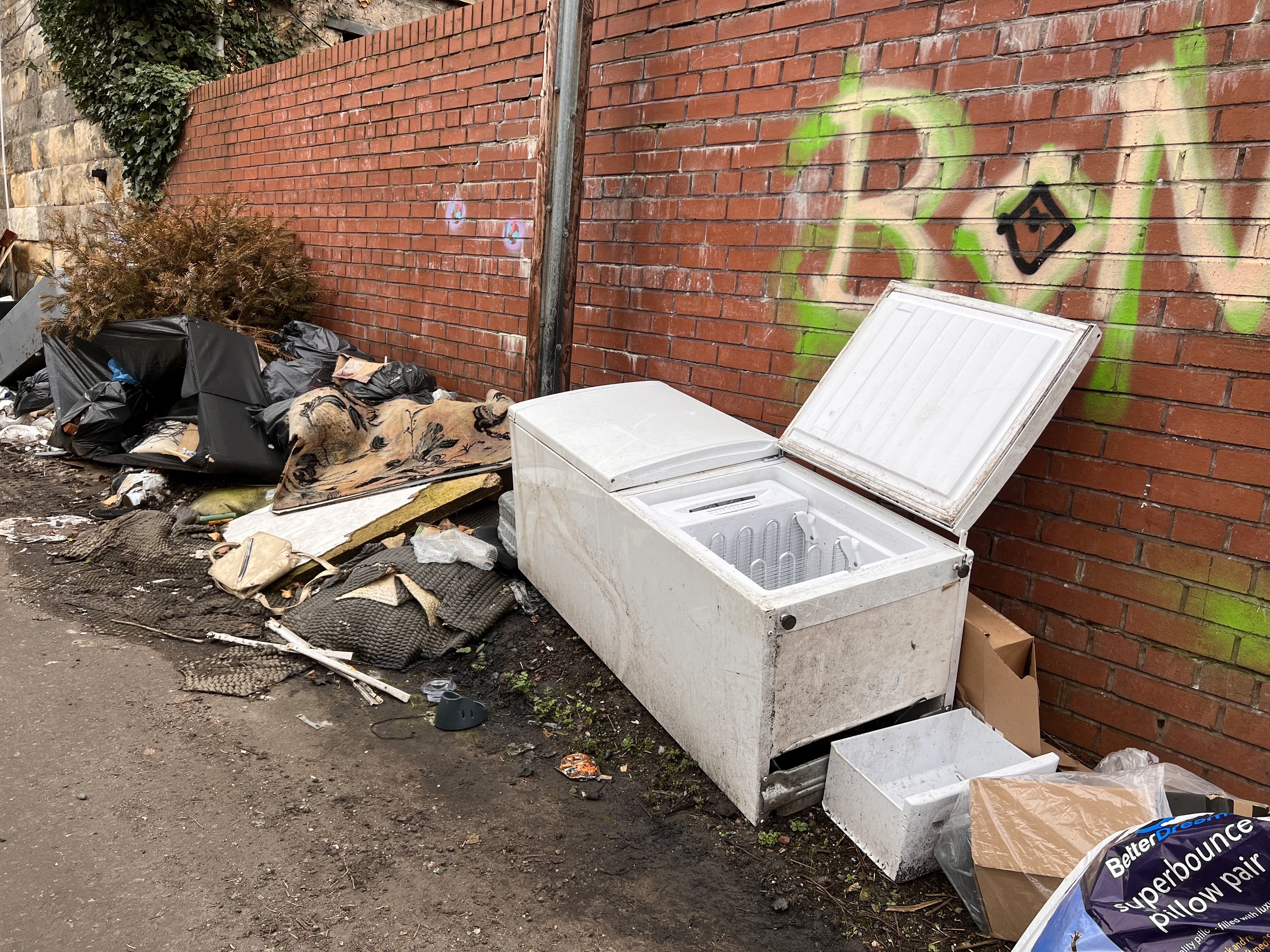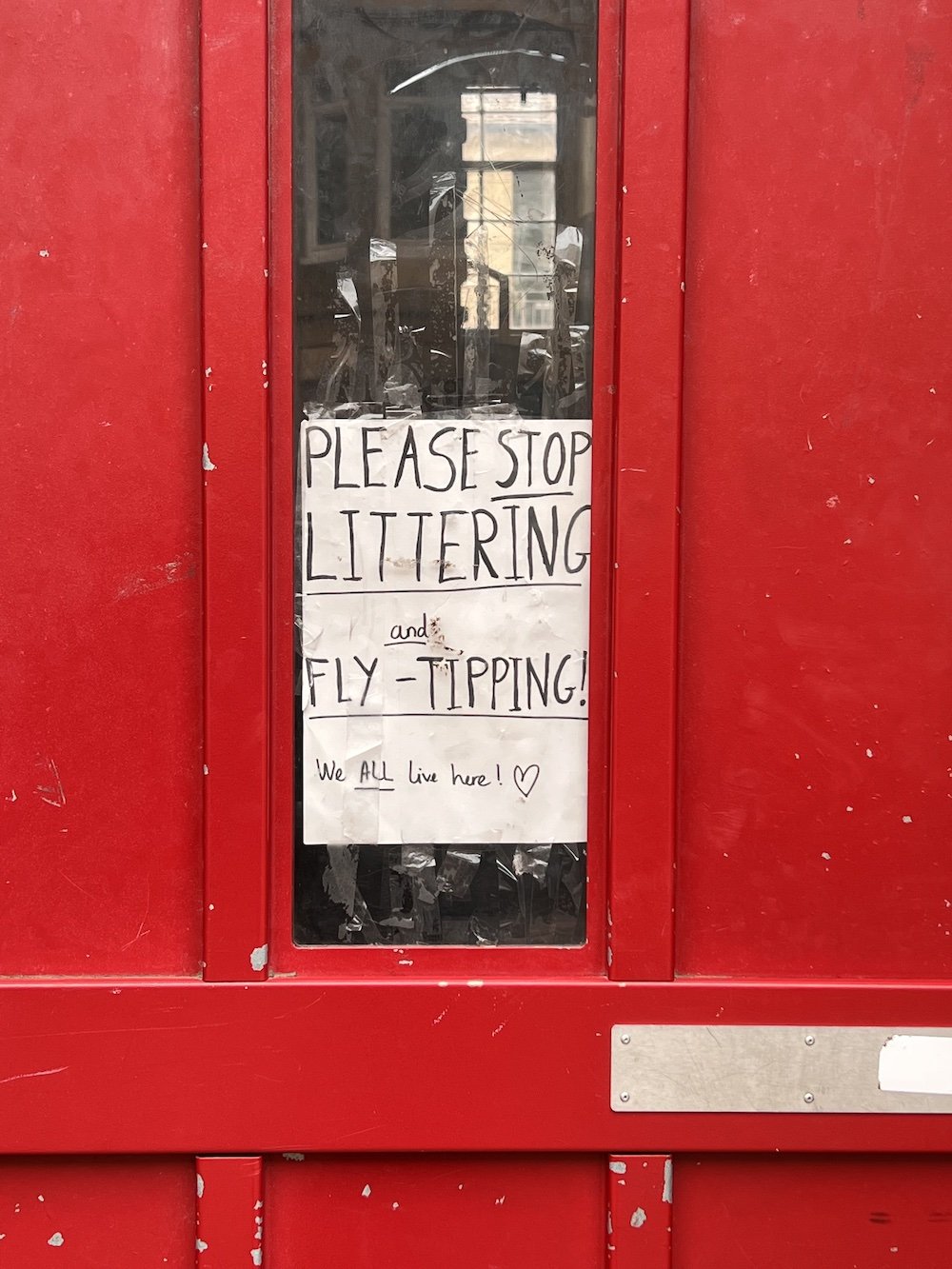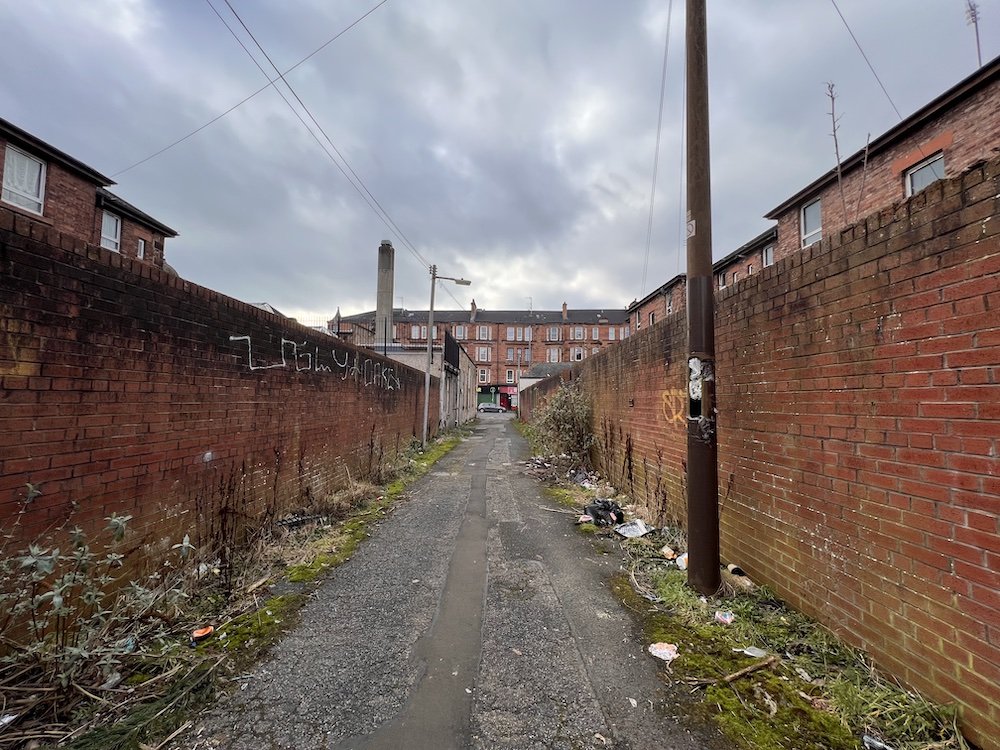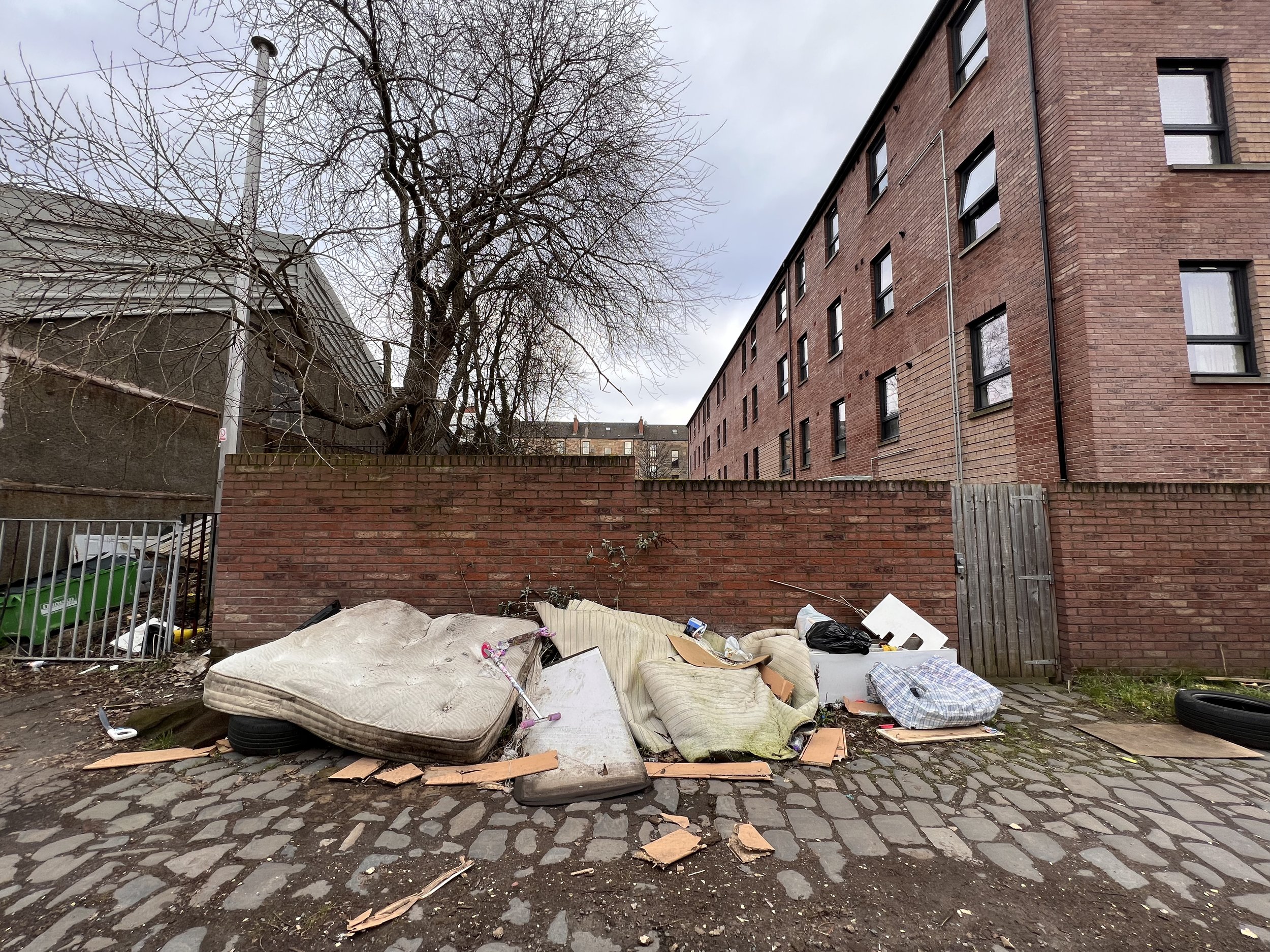What Can We Do About the State of our Lanes?
What can be done to prevent littering and fly tipping in our lanes and back courts, when they are privately owned and the council does not take any responsibility? How can we make our neighbourhood cleaner and safer? Share your experiences, and tell us what you think should be done.
By Jack Howse & Rhiannon J Davies | Photos by Michael Paley
Since opening the Community Newsroom, we have been hosting regular screenings, talks and workshops. The most popular event by far was a community conversation on one of the big issues facing our neighbourhood at the moment – fly-tipping and rubbish in our lanes and back courts.
Lots of people shared similar experiences including waking up to find a landlord had emptied an entire flat into the street, logging instances of fly tipping on the Glasgow City Council and receiving no response, bins not being emptied for weeks, or homeowners being billed for the removing other people’s bulky waste. What was clear from the conversation was that none of these were individual instances, but part of a community-wide issue.
Several attendees had formed their own residents groups or started a WhatApp chat for their close to try to make a difference. It was inspiring to hear from people who organised community clean-ups, got gates installed, or created tranquil spaces in their shared courts. But not everyone had had this experience.
There are 931 privately owned lanes in Glasgow, several of which are in and around Govanhill. This means they are not ‘adopted’ by the council who have no obligation to carry out repairs, maintenance or street cleansing. Instead they offer an online resources including ‘Private Lane Toolkit’ which provides suggestions on things like forming a residents group, removing foliage and bin collections.
The council also offers a fund which is available to constituted residents groups in order to make improvements. However, In Govanhill, in any given block, homes are owned by a mix of social housing, owner-occupier and privately rented flats. This is combined with a high tenancy turnover and a known problem of ‘slum landlords’. Most people said they do not have the time, or energy, needed to make this happen. What's more, many did not think it fair that a handful of motivated residents should have to clean up the entire flat clearances of other people, including people from outside the area who are using Govanhill as a dumping ground, and having to deal with unsanitary materials.
In response, to this, a representative of Glasgow City Council told Greater Govanhill:
“This is a long standing issue with communally-owned private property. We can certainly sympathise with those who seek to deal with issues on their property while others do not contribute time and effort. However, those who are picking up on issues are discharging their responsibility for the maintenance of their property. We have found that properly constituted groups can help to sustain a more structured response to maintenance issues, make it easier to engage with professional factoring services and also help to attract additional funding.”
The Kingarth Lane Community Group received funding to buy gates to prevent fly tipping in their lane, but were not granted permission to install the gates on the grounds that the look of the gates was incongruous with the street scene and because through it would impact connectivity in the area, despite one side being blocked off. The council refused to comment on this as it is the subject of an ongoing planning appeal.
During the community conversation we also discussed some possible solutions to the problem, looking at what could be done by four key types of actors: landlords, businesses, residents and the council. Some of the suggestions included:
Landlords and the council should have to pass on correct waste disposal information to all tenants - in community languages
A community swap shop for unwanted goods that are currently left on the streets.
A free mobile skip, and regular bulk uplift provided on set days.
Stronger penalties for fly-tipping that are better enforced
Community awards for businesses who make a difference in this area, and a rating system to incentivise others to do better.
Creating underground bin storage so waste was underground, not in the street.
Investing in waste compactors.
Stronger bin bags for businesses, so they were less likely to be pecked open by birds.
In response to the request to provide better information, Glasgow City Council told us:
“There is extensive information on our website on the correct way to dispose of household waste. However, this is an area where we wish to improve. Neighbourhoods, Regeneration and Sustainability Services is currently working with The Hub and Govanhill Housing Association to provide more accessible education materials in the local community. On-line technology is also helping to make the information available on our website more accessible for those who do not have English as their first language.”
With regards to the need to provide better services to deal with fly tipping and vermin control, Glasgow City Council said:
“Glasgow City Council continues to provide a free domestic pest control service. If there are issues with waste on public property then these should be reported to us so action can be taken. We continue to meet our obligation to remove fly-tipping in communities across the city, including Govanhill.
“Govanhill continues to receive additional cleansing resources. We have a rapid response team operating in the area each day to deal with fly-tipping and other environmental issues. Govanhill also receives a regular street cleansing services and has a dedicated neighbourhood liaison officer to help address a range of environmental issues.”
And, in response to the accusation that the council was failing the people of Govanhill its duties to keep the streets clean and dispose of refuse by environmentally friendly means; maintain a high standard of public health; and maintain a cleaner, safer city, we were told:
“A substantial effort has been made to improve the Govanhill area over a number of years. The multi-million pound Acquisition and Repairs programme has transformed how property in the area is managed and that has helped to address many of the environmental issues in Govanhill. The Enhanced Enforcement Area, which remains unique in Scotland after Glasgow City Council successfully lobbied the Scottish Government for changes to the housing legislation, has also played a significant role in improving housing standards in the area. Implementation of the EEA has, for example, allowed the council to set higher standards for landlords in the Govanhill with many subsequently refused entry or removed from the landlord’s register in relation to poor property management.
“The area has a dedicated neighbourhood liaison officer and as well as the Govanhill Hub, which are designed to support the community. Govanhill has also been the focus of significant levels of engagement with local businesses to ensure appropriate waste management contracts are in place. We continue to work closely with the community to ensure the additional resources the community receives are deployed as effectively as possible.”
Despite these initiatives, local residents are telling us that more could be done. Something that several people expressed an interest in was forming a coalition of local residents, businesses, landlords, factors and community organisations – to develop a forum for conversation and a campaign in order to bring about real change.
So we want to hear from you.
Have you got a problem with your lane or back court? Do you have ideas for what could be done to fix it? Would you be interested in being part of future conversations? Tell us your thoughts and get involved by filling out this form:




